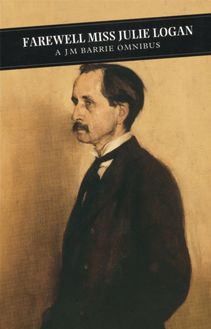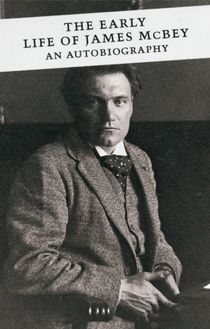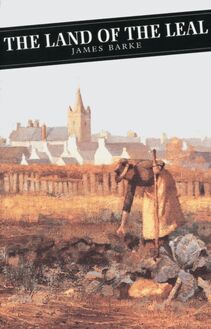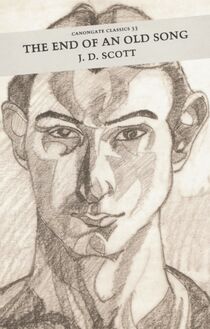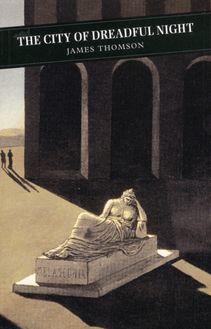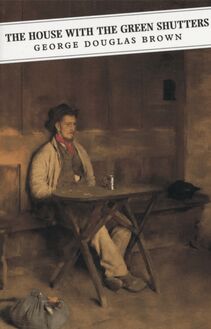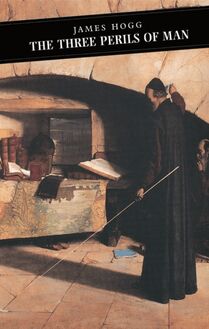Cloud Howe , livre ebook
137
pages
English
Ebooks
2010
Vous pourrez modifier la taille du texte de cet ouvrage
Obtenez un accès à la bibliothèque pour le consulter en ligne En savoir plus
Découvre YouScribe en t'inscrivant gratuitement
Découvre YouScribe en t'inscrivant gratuitement
137
pages
English
Ebooks
2010
Vous pourrez modifier la taille du texte de cet ouvrage
Obtenez un accès à la bibliothèque pour le consulter en ligne En savoir plus
Publié par
Date de parution
01 juillet 2010
Nombre de lectures
1
EAN13
9781847678034
Langue
English
Publié par
Date de parution
01 juillet 2010
Nombre de lectures
1
EAN13
9781847678034
Langue
English
to George Malcolm Thomson
Contents
Introduction
Note on the Text
Map of Segget
PROEM
I Cirrus
II Cumulus
III Stratus
IV Nimbus
Notes
Glossary
Introduction
American reviewers were as impressed by Cloud Howe on its first appearance as they had been by Sunset Song . The New York Times, Herald Tribune , and North American Review praised it to the skies, but the best account I know of a first reading comes from Herschell Bricknell, in a letter of 14 February 1934 to Gibbon’s American publishers:
I read until I went to sleep Saturday night and waked half a dozen times thinking of what Gibbon was saying. Early Sunday morning very early I finished it, and all day yesterday I was under the spell of it. It is a perfectly extraordinary book I don’t know what people will do with the dialect, but I hope everybody able to be turned upside down by a piece of writing will read it. 1
Gibbon’s peers among contemporary Scottish novelists Compton Mackenzie, Naomi Mitchison, Neil Gunn, and George Blake hailed it as a masterpiece, although one writer of the older generation, the poet Lewis Spence, who had been delighted by Sunset Song , saw its successor as merely ‘a deliberate misconception, a capricious guffaw’ ( Scottish Field , October 1934). As might have been predicted, many Scottish newspapers were as scathingly contemptuous as they had been over Sunset Song . ‘Those who like a simple clean story will not find it here’, wrote the Aberdeen Press and Journal ’s critic on 3 August 1933. ‘If life in a Mearns town is compounded of indecencies, sneers, ill-will, spying, gossiping, downright cruelty, then this Mearns town is consistent.’
These hostile judgments are worth recalling because they were a response to an essential feature of the book. Seen from one angle, Cloud Howe is a brilliant picture of a small country town set in a consummately rendered fictional region. There is nothing on the map of Kincardineshire that corresponds to Segget in the place where Segget is supposed to be, though certain features, such as the jute mill and the owner’s management of it may be based on Inverbervie. The ruined Kaimes are compounded from various sources, not least Fenella’s castle near Fettercairn; Frellin, Culdyce Moor, and Quarles seem to be inventions, though marvellously plausible ones. But Gibbon, in the interests of solidity, also features many genuine place names from the real region of which the fictional one is an emanation. Segget, like so much in the book, is fictional in order to be typical more typical than a photographic documentary of any real community could be; and it is typical of a community gone wrong. It has gone wrong because it is infected with ‘those little prides and those little fortunes’ which Robert told of in his sermon by the war memorial at the end of Sunset Song , the ‘new oppressions and foolish greeds of the world that we seem to inherit’. That is why the narrative voices of the community the Segget voices are often cruder and more strident than the Kinraddie voices, and why Chris’s voice never fuses with the Segget ones but is always separate, just like her essential inner self, ‘Chris alone’.
Yet it is not only what has happened since the war that has made Segget the obscene pit that it is; it is the whole history of class society, all the millenia of man’s inhumanity to man, as we see from Chris’s thoughts during a confrontation with Mowat, the degenerate mill-owner:
… suddenly she’d seen so much she didn’t say, all the pageant of history since time began up here in the windy Mearns Howe: the ancient rites of blood and atonement where the Standing Stones stood up as dead kings; the clownings and cruelties of leaders and chiefs; and the folk her folk who kept such alive dying frozen at night in their eirdes, earth-houses, chaving from the blink of day for a meal, serfs and land workers whom the Mowats rode down, whom the armies harried and the kings spat on, the folk who rose in the Covenant times and were tortured and broken by the gentry’s men, the rule and the way of life that had left them the pitiful gossiping clowns
that they were, an obscene humour engraffed on their fears, the kindly souls of them twisted awry and veiled from men with a dirty jest …
What Lewis Spence and the Press and Journal reviewer did not appreciate was that there are still kindly souls in this community, a point made cogently by Chris in a dialogue with Robert which extends the discussion from region to nation, from the Mearns to the whole of Scotland:
[Robert said], ‘My God, were there ever folk like the Scots! Not only THEM you and I are as bad. Murderous gossip passed on as sheer gospel, though liars and listeners both know it is a lie. Lairds, ladies, or plain Jock Muck at the Mains they’d gossip the heart from Christ if He came, and impute a dodge for popularizing timber when He was crucified again on His cross!’
Chris said ‘That’s true, and yet it is not. They would feed Christ hungry and attend to His hurts with no thought of reward their attendance might bring. Kind, they’re so kind…. And the lies they would tell about how He came by those hurts of His …’
Throughout the novel, the voices of Segget are not uniformly mean and petty. True, there is the vile voice that reports the long agony of Meiklebogs’ injured horse; but there is also an essentially decent voice that is proud of Cis Brown and refuses to believe she has taken up with Dod Cronin. This same voice is later full of honest radical indignation at the sufferings of the unemployed:
And there were worse cases than these, far worse, God damn’t! you had never much liked the spinners, but the things that were happening near turned you sick, it was kicking in the faces of the poor for no more than delight in hearing the scrunch of their bones.
One of the triumphs of Cloud Howe is its magnificent ‘orality’. There are indeed many voices other than the community voices not merely the voice of Chris’s interior thoughts with its subtle use of ‘self-referring you’, or Else Queen’s intensely Scots inner voice and Ewan’s cool English one, which we occasionally hear as vehicles of the narrative; not merely Robert’s ministerial conversation (we hear him only in dialogue, he is never given interior monologue); but the more public voices of oral folk tale, sermons, and open-air speeches. There is at times a quite extraordinary orchestration of folk-narrative technique within the Segget voice, where one must assume an anonymous individual in the traditional role of tale-teller with an audience around him. It is such a person (though malicious and mean of spirit, one feels), who tells how Else Queen’s bairn was born among the sheaves in the corn-loft; and into his tale is set another, a folk anecdote about Burns and the Virgin Mary, assigned to a named individual and perfectly suited to his character: ‘That was a real foul story to tell, it showed you the tink that Ake Ogilvie was, interrupting the real fine newsy tale of the happenings down at the Meiklebogs.’ Of course Gibbon’s irony intends us to approve of Ogilvie’s racy irreverence and condemn the tone of the newsy tale-teller.
A more sublime orchestration is heard in Robert’s contrasting sermons the militant sermon about Samson and the Philistines which got him the Segget kirk, though the congregation hadn’t a clue what it meant; the crusading sermon with which he opens his campaign to clean up Segget and which puts the tradespeople against him; the namby-pamby quietist sermons he preaches after the defeat of the General Strike (we only hear about these, they are not quoted directly), and the fine rousing sermon at the very end of the book which looks away from Christianity altogether to the Communism of Grey Granite . Within this pattern of public oratory we also have the evangelical sermons of the hypocritical McDougall Brown (these are merely referred to, not quoted at length); and the dialectic between Robert’s sermon at the Memorial on Armistice Day and the socialist address of Jock Cronin, the spinners’ leader, after their procession has broken in on the official service. If Gibbon had included an Episcopal minister and his wife, as was once his intention, 2 he might well have given us even more sermons than he did. And if he had followed the idea he once had of ending not with Robert’s death in the pulpit but with a grand trial scene in which he would have been expelled from the Kirk for his politics, 3 public oratory would surely have bulked even larger in the total design.
Such oratory necessarily belongs, given the nature of society and public life in the Mearns and Scotland of the 1920s, to the world of men. But the book’s greatest achievement does not belong to the world of men at all, except peripherally; it lies in the continued development of Chris’s character, so brilliantly begun in Sunset Song . Robert’s career has the shape and emotional impact of a tragedy of character in which the hero redeems himself at the close and destroys himself in so doing. But we experience the tragedy mainly through its effect on Chris the breakdown of her originally happy marriage, her agonised spectator’s response to his desertion of Christ the Tiger for Creeping Jesus after the defeat of the Strike, and the final act of heroic mercy that brings about his death. We are false to the book if we read it as primarily historical allegory; if it were, it would not turn non-Scots readers upside down the way it does. Like all the greatest characters in narrative and drama, Chris is both a unique individual and profoundly typical. George Malcolm Thomson, to whom the book is dedicated, wrote that ‘this Chris of yours is surely the greatest woman character in Scottish fiction … She is intensely Scottish and yet universal (Letter of 23 July 1933) 4 In this respect Chris is like Natasha in War and Peace , for she exhibits the most positive, the most enduring aspects of the nationa
